The 16 Best Spray Sunscreens for Face and Body
From kid-friendly mists to SPF-packed setting sprays.
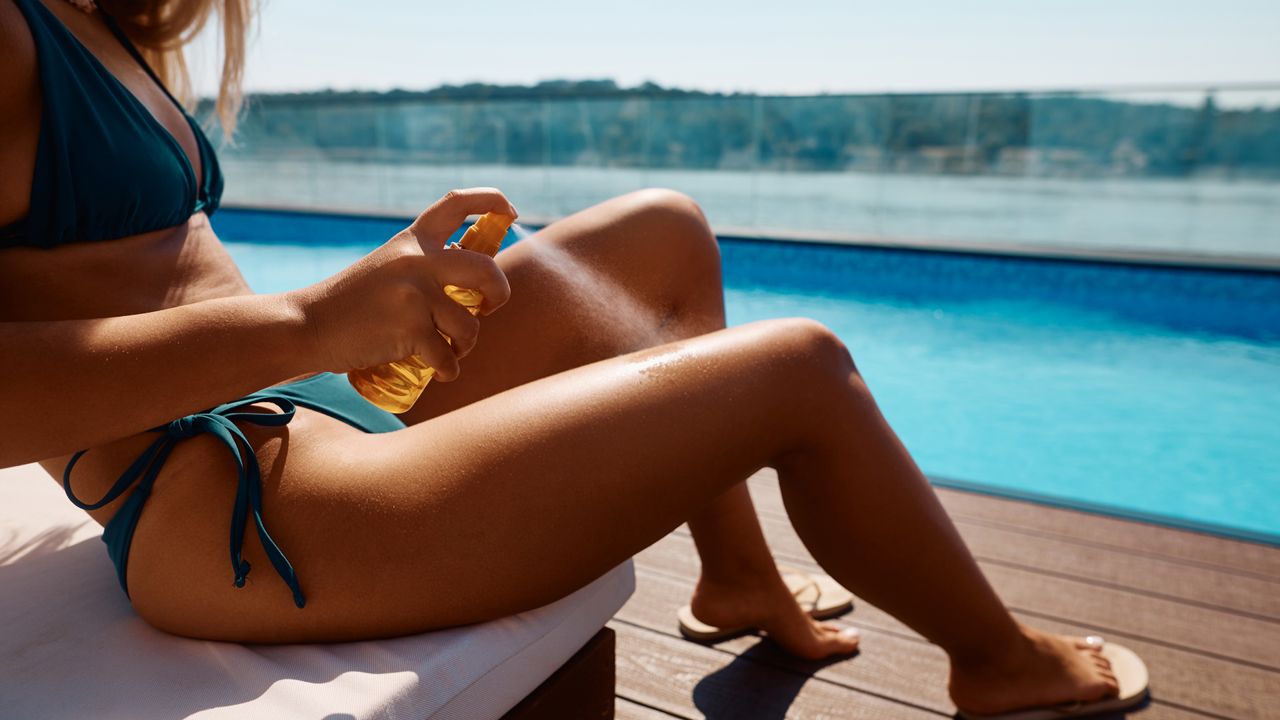
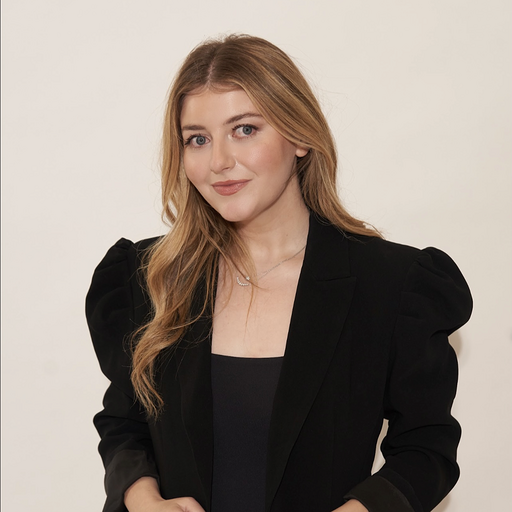
Brooke Knappenberger
I could write a dissertation about the best sunscreen products in my sleep. SPF is my holy grail, my can’t-live-without, my must-have. I’ve tried dozens upon dozens of formulas through the years, and I’m confident that there’s nothing as quick, easy, and convenient to apply as one of the best spray sunscreens. Because whether I need to reapply sunscreen over makeup or want a non-sticky full body mist to use on the beach, a super-fine SPF spray is always going to be my MVP.
The convenience can’t be beat, and while a spray can be just as effective as a cream sunscreen formula, it’s important to take a little extra caution during application to avoid bizarre tanning patterns (been there, done that, not cute) or sunburn. The recipe for success? Hold the bottle no more than six inches away from your body and thoroughly rub everything into the skin. As for the face? Start off with a cream formula (mineral or chemical will do) and reach for a facial-friendly spray SPF for reapplication.
To get a crash course in all things spray sunscreen, I strongly encourage you to keep reading. Not only have I rounded up some of my personal favorite products, but I also tapped board-certified dermatologists Dr. Lindsey Zubritsky and Dr. Hadley King to get their top application and safety tips. From fine mists with a barely-there feel to makeup setting sprays loaded with SPF, here’s a definitive guide to the best spray sunscreens.
Is Spray Sunscreen Safe?
You may remember back in 2022 when Johnson & Johnson recalled some of its sunscreens after finding low amounts of benzene in some samples. What is benzene, you may ask? According to board-certified dermatologist Dr. Hadley King, benzene is a known carcinogen found in a number of aerosol sunscreens. Now, before you ditch spray sunscreens for good, Dr. King says that investigations have often focused on the effects of benzene after it's been ingested or inhaled, not through our skin. "We still don't know how effectively benzene penetrates through the skin, or how the benzene behaves after skin penetration," she explains. Dr. King does say that inhaling benzene can be harmful to the lungs, adding, "It has been hypothesized that benzene contamination may come from isobutane, a spray propellant used in aerosol mechanisms." So, if you want to reduce the risk of benzene contamination and still want a spray sunscreen, Dr. King recommends using options that are non-aerosol and to be sure you don't inhale any product.
Additionally, the EWG profiled more than the formulas and performance of 1,700 sunscreens and found just one in four met their standards. The study searched for chemical ingredients such as oxybenzone, octinoxate, homosalate, octisalate, octocrylene, and avobenzone. While these ingredients do provide UV protection, they may cause adverse effects such as skin allergies or hormone disruptions. Take into account, though, that all sunscreens are regulated by the FDA and must pass certain tests, and any sunscreen is better than going without—and Dr. King would agree. She explains: "Avoiding an effective preventive measure such as sunscreen could prove more harmful than exposure to trace amounts of benzene, ultimately to be determined by the FDA. The same can be said of theoretical risks of some chemical sunscreen ingredients." Of course, if you have any allergies and particular concerns, consult with your doctor before using a new sunscreen.
Overview
- The Best Body Sunscreen Spray Overall: Vacation Classic Sunscreen Spray Broad Spectrum SPF 30
- The Best Facial Sunscreen Spray Overall: Sun Bum Face Mist SPF 45
- The Best Makeup Setting Spray with SPF Overall: Kate Somerville UncompliKated SPF Soft Focus Makeup Setting Spray Broad Spectrum SPF 50 Sunscreen
- The Best Ultra-Fine Sunscreen Spray Overall: EltaMD UV AOX Mist Broad Spectrum SPF 40
- The Best Budget Sunscreen Spray: Hawaiian Tropic Silk Hydration Weightless Sunscreen C-Spray
- The Best Splurgeworthy Sunscreen Spray: HydroPeptide Solar Defense Broad Spectrum SPF 30
The Best Body Sunscreen Sprays
“When using sunscreen, I recommend applying at least one ounce of sunscreen to the entire body—this is the equivalent of a shot glass,” explains Dr. Zubritsky. “This can be hard to determine using a spray-on sunscreen, so a good rule of thumb is to apply the spray until the skin glistens.” You’ll want to keep the bottle close to the skin (no more than a six inch distance) and rub the product in.
For reference, a standard size bottle of spray sunscreen should last *only* six body applications. Let that sink in: one bottle is worth only six body applications.
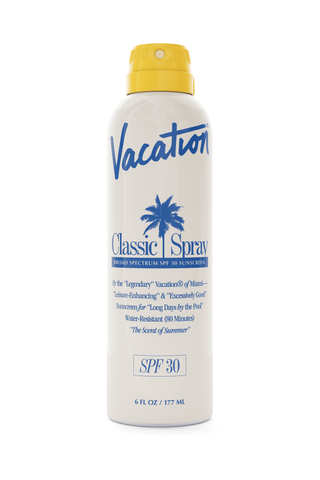
First things first: this SPF smells like heaven—and that’s not an exaggeration. Delicious coconut scent aside, the formula is a winner. It’s going to protect you from UVA and UVB rays, while also soothing and hydrating your body thanks to ingredients like aloe vera, shea butter, and banana extract.
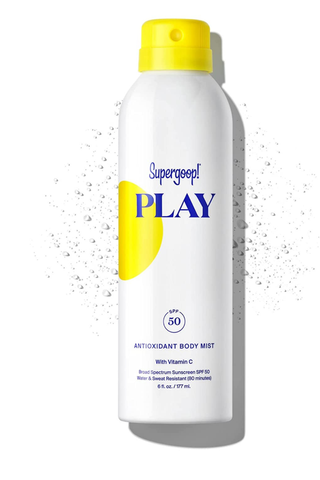
Dr. Zubritsky loves this SPF “because it contains antioxidants like Vitamin C for extra protection.” She says it’s ideal for allll the summer activities (read: hiking, swimming, sports) because it’s water resistant. While you should reapply your sunscreen every two hours, it’s best to lather up after 80 minutes if you’re sweating or decide to go for a dip.
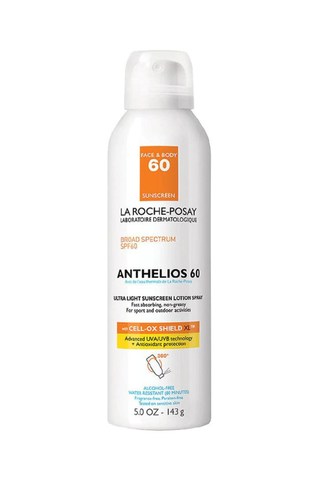
Making sure that little kids are protected from the sun is tough. Trying to coat them in a cream? Near impossible. But with a spray like this La Roche-Posay option, it’s a heck of a lot easier. We love this formula because it’s water resistant, offers antioxidant protection, and leaves a silky finish.
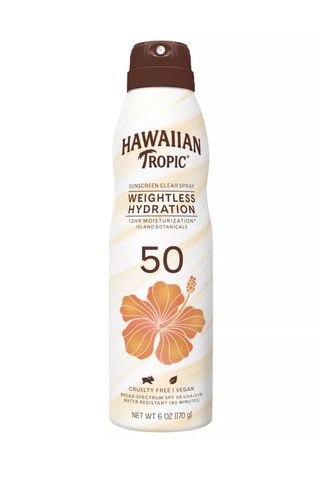
When I'm on vacation, I want to smell like I'm on vacation. Think: coconuts and the salty ocean breeze. This sunscreen perfectly captures that scent, so this is a big winner in my book. Not only because of the lovely scent but also because it feels weightless on the skin and has a nourishing formula, not to mention it's reef-safe.
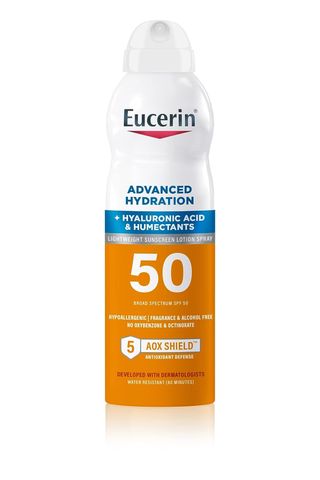
I'm incredibly lazy when it comes to applying body lotion, so thankfully this sunscreen removes that step. While it applies conveniently through a spray, it feels just like an ultra-hydrating lotion without any leftover greasiness. I will say you do have to rub it in just a tiny bit, but I'd say it's worth it to know you'll be fully protected against the sun.
The Best Face Sunscreen Sprays
First things first: the face is sensitive, so it is going to be best to start off with a cream formula. That said, a spray can be used for reapplication—just make sure you’re using one of the best formulas. “Choose a spray sunscreen that is specifically made for the face to prevent clogging pores and acne breakouts,” explains Dr. Zubritsky. “Be sure to avoid getting any in your eyes and keep your mouth closed while spraying.”
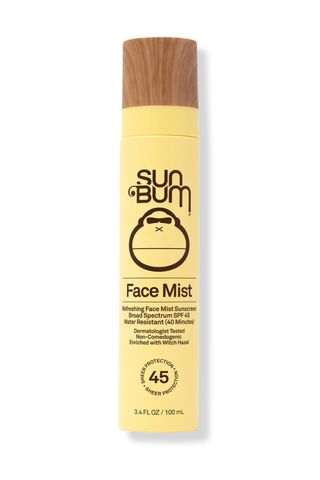
Remember those super-fine water misters that cooled you off while you waited on line for a roller coaster? Remember how cooling and light it felt? Same vibes here. This mist is easy to reapply all day long, and it smells like bananas to boot. Plus, it has Dr. Zubritsky’s stamp of approval.
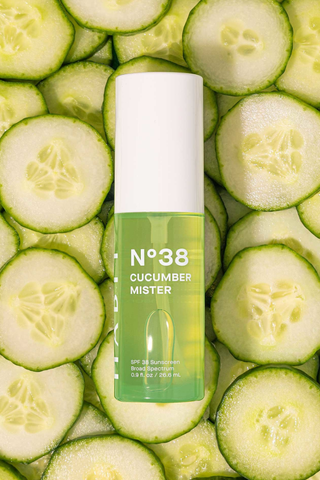
There’s nothing more refreshing than having a facial mist on hand during a sweaty beach day. Habit delivers—but they take things a step further too. Not only is their cucumber-scented mist going to give you a pick-me-up, but the formula is made better with SPF 36.
The Best Makeup Setting Sprays With SPF
A setting spray packed with SPF is Dr. Zubritsky’s go-to for reapplication with makeup. Setting sprays easy as can be to apply over makeup and won’t mess up your foundation or cause your mascara to bleed. Just make sure you’re applying enough product to actually get the benefits on the bottle. Reminder: you want to “glisten.” If you’re more into a matte look, check out the best powder sunscreens.
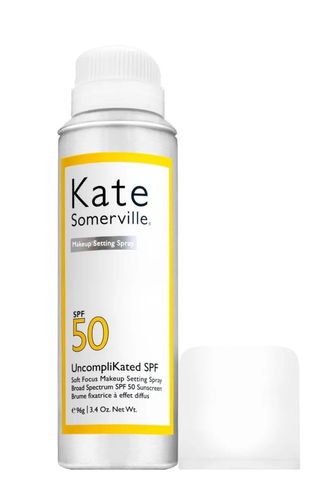
If you're looking for a 2-in-1, this double-duty formula acts as a SPF and matte-finishing makeup spray. That's right—this spray will keep your makeup in place and add a soft blurred finish for a long-lasting look. We’re not the only ones that love this formula—it’s also Dr. Zubritsky’s fave.
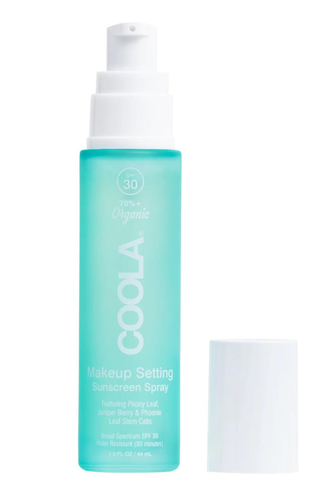
This SPF 30 formula is 70 percent certified organic (a.k.a. great for sensitive skin) and will seal your face beat in with a lightweight matte-finish. The shine-control formula is far from drying though—it’s packed with hyaluronic acid and aloe vera to boost moisture during sun-filled days.
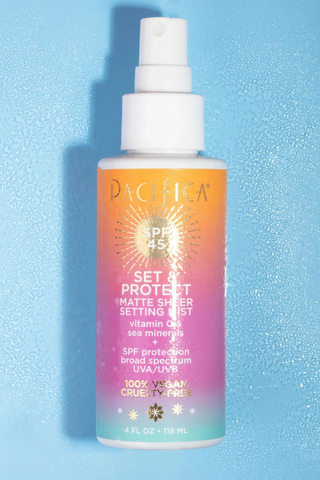
Set your makeup and get broad-spectrum UVA and UVB sun protection with just a few spritzes. You can pop this hydrating facial spray into your purse and mist throughout the day for a radiant complexion.
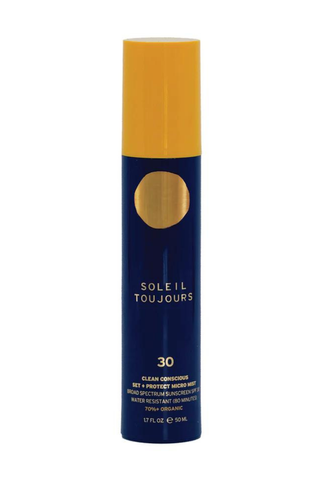
This sheer mist is brimming with nourishing skincare ingredients like aloe extract, green tea leaf extract, and sodium hyaluronate that'll soothe and hydrate your skin. Plus, red algae, vitamin C ester, vitamin E, and bisabolol will provide anti-aging benefits, improve skin texture, and reduce skin damage.
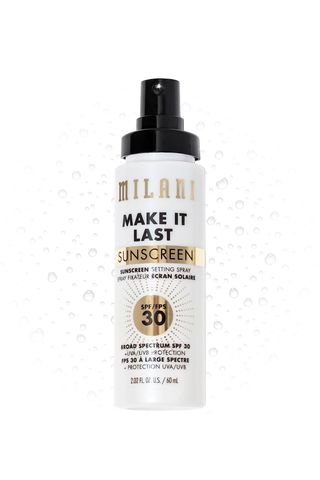
As something that I use every single day, setting spray can quickly add up, which is why I'm so glad I came across this budget pick. With over 28,000 5-star reviews, Amazon shoppers are obsessed with this spray for its long-lasting effect and ample sun protection. Reviewers say it feels lightweight on the skin and leaves a dewy glow. Not bad for just $14.
The Best Ultra-Fine Sunscreen Sprays
If you *despise* the sticky, greasy feeling of sunscreen, we have some good news: There are a handful of products that spew out SPF so fine, you barely feel it. They sink into the skin, dry down in seconds, and won’t leave your face or body with a damp or wet feel.
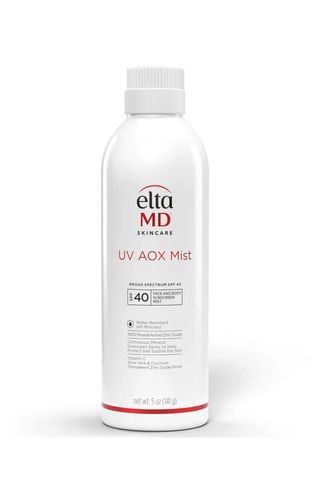
I'm sure you know and love EltaMD's cult-favorite UV Clear sunscreen. Well, I'm here to tell you this spray version is just as good. While this ultra-fine mist sprays out white (a bonus for being able to see exactly where you spray), it absorbs into skin in seconds with a completely clear finish—no white cast or streaks in sight! The formula is also jam-packed with antioxidants to fight anti-aging. A win-win!
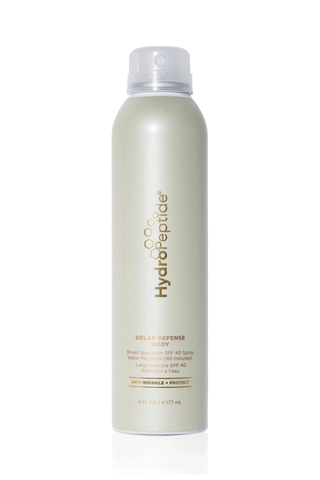
Protect your skin from sun damage that causes wrinkles and fine lines by adding this spray into your daily routine. The scent-free mineral sunscreen contains hyaluronic acid and aloe, which work to keep your complexion clear and hydrated.
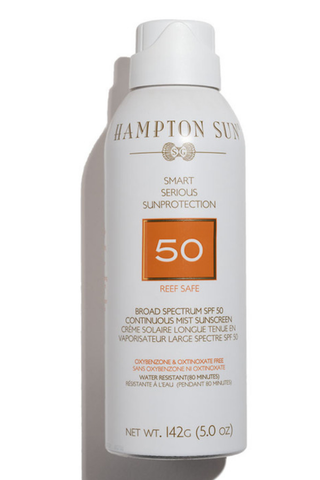
No one wants the sand to stick to their body during a beach SPF application. And with this luxe formula, you won’t have to worry. The aloe vera-packed spray has a silky texture that doesn’t leave a greasy residue behind. Plus, it's also got a slew of skin-fortifying vitamins and calming aloe vera extract.
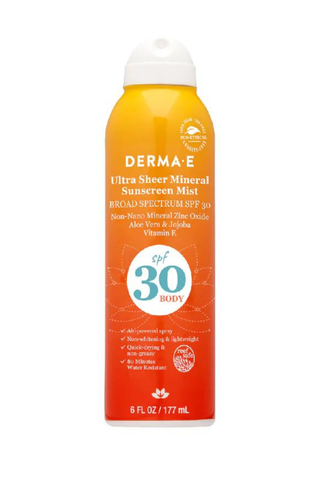
For an SPF that’s reef safe and has a vegan ingredient list, you can beat Derma-E. The spray comes out completely clear and is uber-fine. While zinc oxide is going to be the main ingredient, the SPF also includes hydrating ingredients like aloe vera and coco butter, along with soothing add-ons like green tea, pomegranate extract, and vitamin E.
What's The Difference Between Chemical and Mineral Sunscreens?
If you prefer spray sunscreens over other formulas, you'll have to decide whether to use chemical or mineral sunscreens, with each having their own pros and cons. Here, Dr. King breaks down the difference between the two formulas and gives her recommendations for each.
- Chemical sunscreens
"Chemical sunscreens are made up of chemicals that are absorbed into the skin, where they can absorb the UV rays and create a chemical reaction that changes the UV rays into heat and the heat is then released from the skin," explains Dr. King. These formulas typically contain a combination of oxybenzone, octinoxate, homosalate, octisalate, octocrylene, and avobenzone, which come may have harmful side effects, as mentioned above. If you have a darker skin tone, you may want to opt for a chemical sunscreen as these formulas don't leave a harsh white cast. Dr. King recommends avoiding oxybenzone and octinoxate as there are other chemical ingredients that are reasonable alternatives.
- Mineral or physical sunscreens
Mineral sunscreens, a.k.a. physical sunscreens, contain zinc oxide and titanium dioxide and work by sitting on the skin's surface and reflecting the sun's UV rays. All in all, Dr. King recommends these formulas as they are less likely to irritate sensitive skin, are photostable (meaning they won't degrade if exposed to UV light), and have fewer concerns about absorption and safety. Additionally, she says, "Physical sunscreens are less likely to clog pores and irritate complexions, particularly for those with sensitive skin." However, physical sunscreens may leave behind a white cast, but Dr. King notes that the formulas of today "have come a long way from their chalky, white, hard-to-spread predecessors."
Meet the Experts

Lindsey Zubritsky, MD, FAAD, is a board-certified dermatologist specializing in general medical dermatology, surgical dermatology, cosmetics, and pediatric dermatology. Originally from Pittsburgh, Pennsylvania, she graduated summa cum laude from Washington and Jefferson College in Washington, PA with a degree in Cell/Molecular Biology where she participated in collegiate soccer. She was inducted into Phi Beta Kappa, the oldest and most prestigious academic honor society in the United States.
She then completed her medical school training at Penn State College of Medicine in Hershey, PA where she graduated at the top of her class and was inducted into the esteemed Alpha Omega Alpha Honor Medical Society. She completed a year of internal medicine training during her transitional year at Kettering Medical Center in Dayton, Ohio. She then pursued her residency in dermatology at the University of Cincinnati Medical Center where she served as chief resident.

Hadley King, MD is a board-certified dermatologist who specializes in medical and cosmetic dermatology. She is also a Clinical Instructor of Dermatology at the Weill Medical College of Cornell University.
Dr. King graduated magna cum laude from Harvard College with a degree in biochemistry. She received her MD from Columbia University. She trained in medicine at Greenwich Hospital, affiliated with the Yale University School of Medicine, and completed her dermatology residency at the Weill Medical College of Cornell University.
After residency, Dr. King worked as an attending physician at Memorial Sloan-Kettering Cancer Center, during which time she specialized in cutaneous oncology and photodynamic therapy. She also has a background in immunology and her research has been published in a variety of medical journals, including the Journal of the American Medical Association.
Stay In The Know
Get exclusive access to fashion and beauty trends, hot-off-the-press celebrity news, and more.

Samantha Holender is the Senior Beauty Editor at Marie Claire, where she reports on the best new launches, dives into the science behind skincare, and shares the breakdown on the latest and greatest trends in the beauty space. She's studied up on every ingredient you'll find on INCI list and is constantly in search of the world's glowiest makeup products. She's constantly tracking the biggest nail and hair trends to pop up in the beauty space, going backstage during fashion weeks, tracking celebrity looks, and constantly talking to celebrity hair stylists, nail artists, and makeup artists. Prior to joining the team, she worked as Us Weekly’s Beauty and Style Editor, where she stayed on the pulse of pop culture and broke down celebrity beauty routines, hair transformations, and red carpet looks. Her words have also appeared on Popsugar, Makeup.com, Skincare.com, Delish.com, and Philadelphia Wedding. Samantha also serves as a board member for the American Society of Magazine Editors (ASME). She first joined the organization in 2018, when she worked as an editorial intern at Food Network Magazine and Pioneer Woman Magazine. Samantha has a degree in Journalism and Mass Communications from The George Washington University’s School of Media and Public Affairs. While at GWU, she was a founding member of the school’s HerCampus chapter and served as its President for four years. When she’s not deep in the beauty closet or swatching eyeshadows, you can find her obsessing over Real Housewives and all things Bravo. Keep up with her on Instagram @samholender.
- Brooke KnappenbergerAssociate Commerce Editor

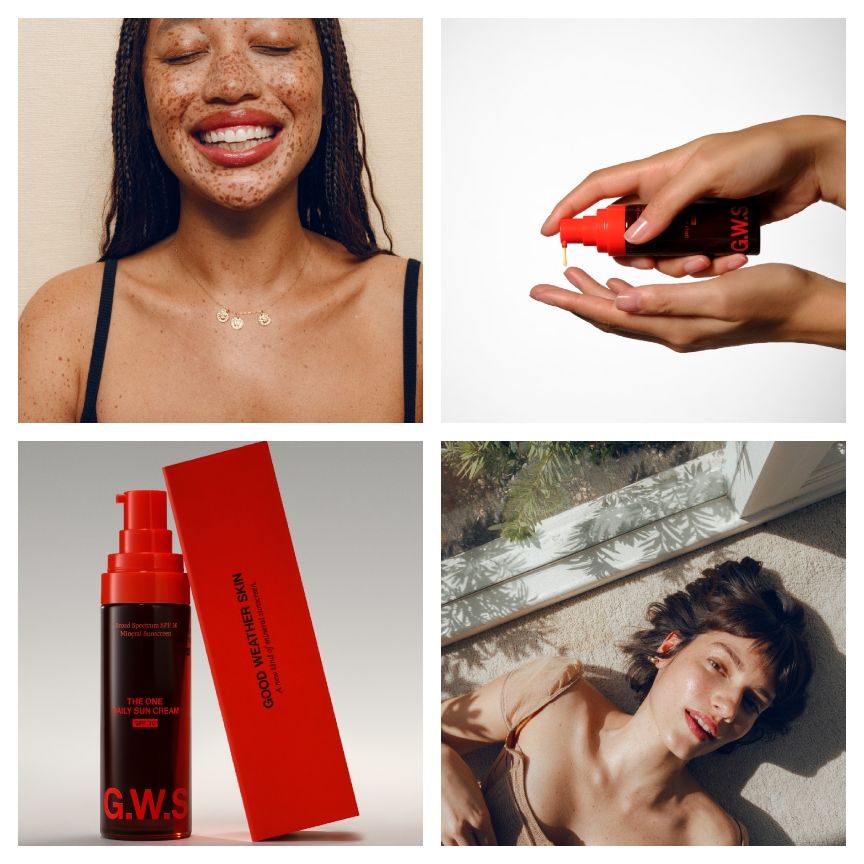
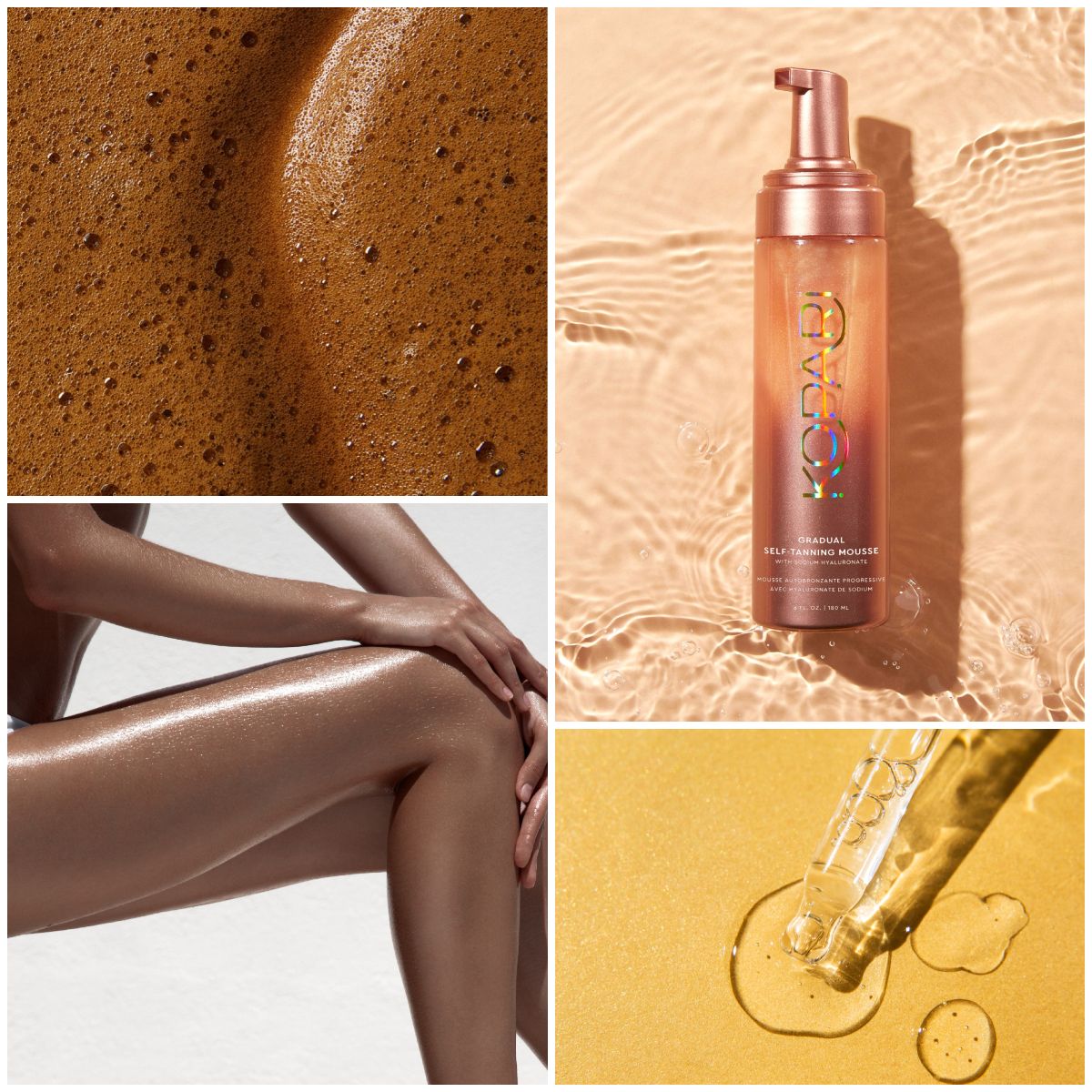
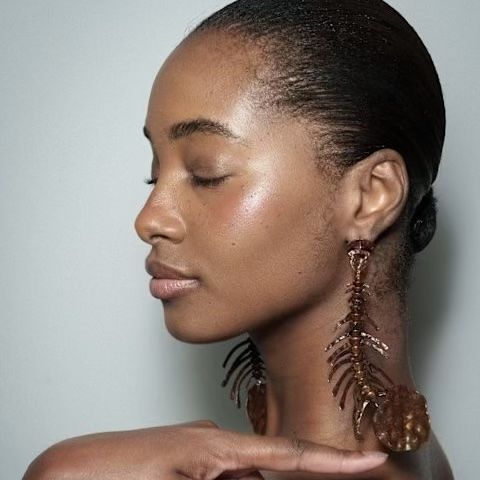
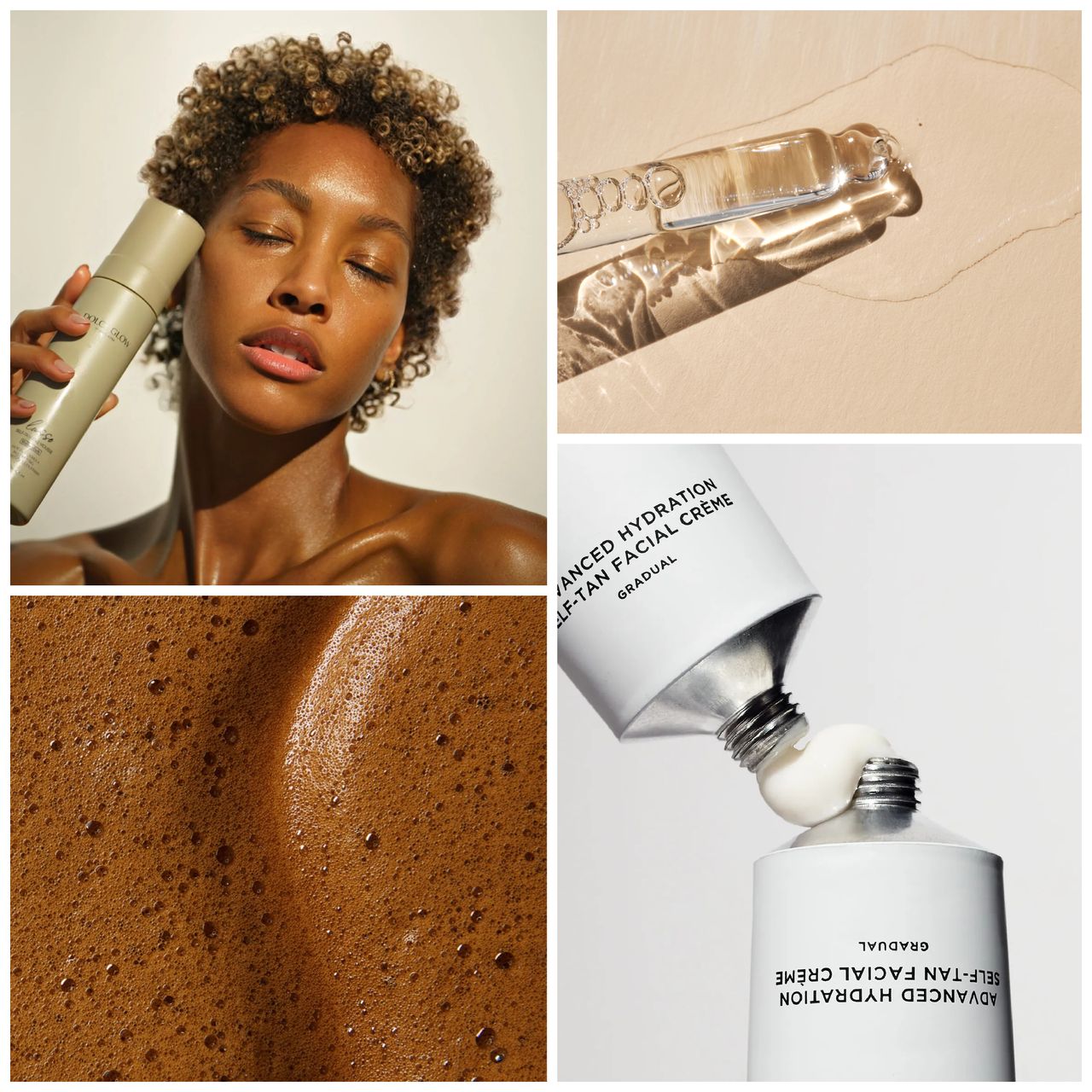
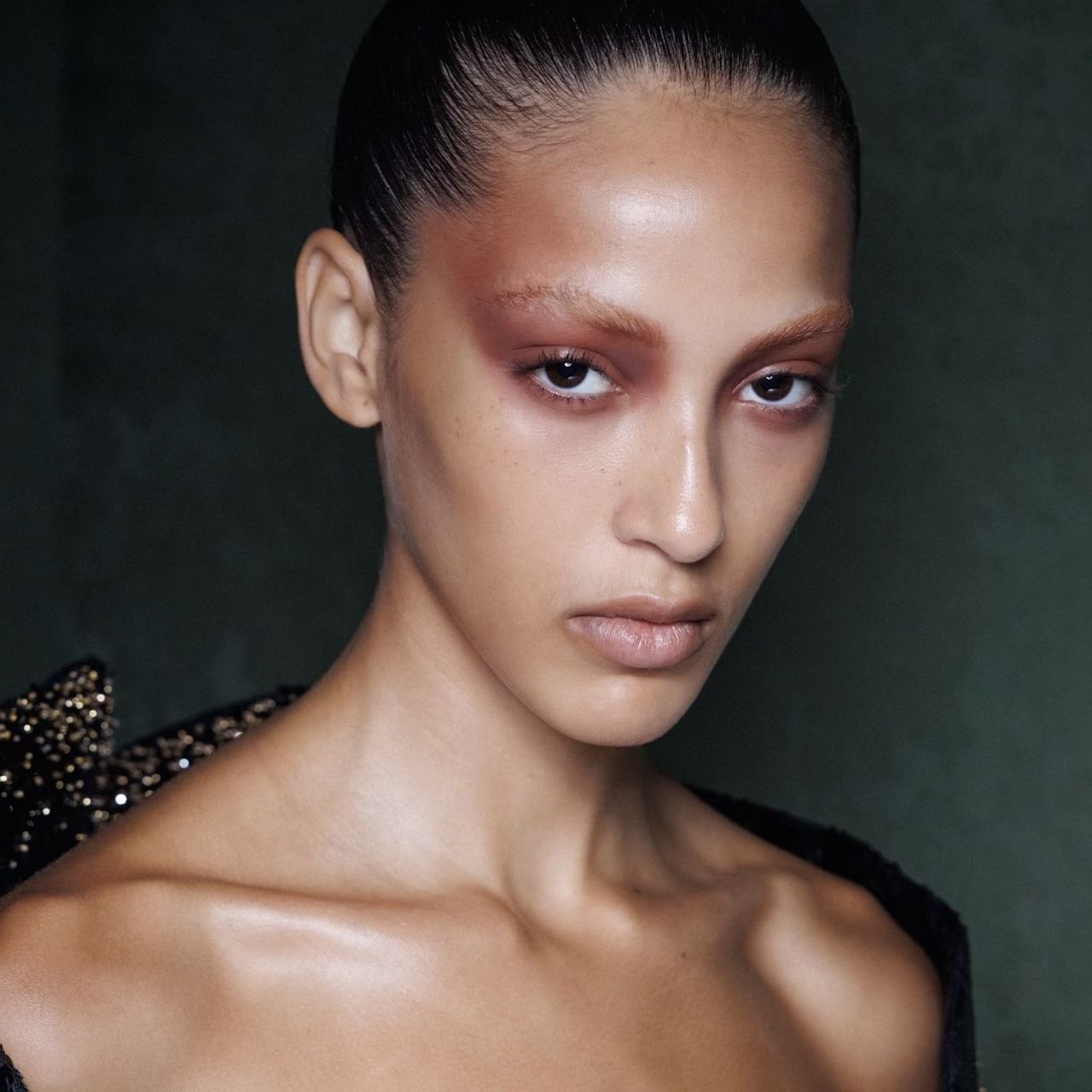


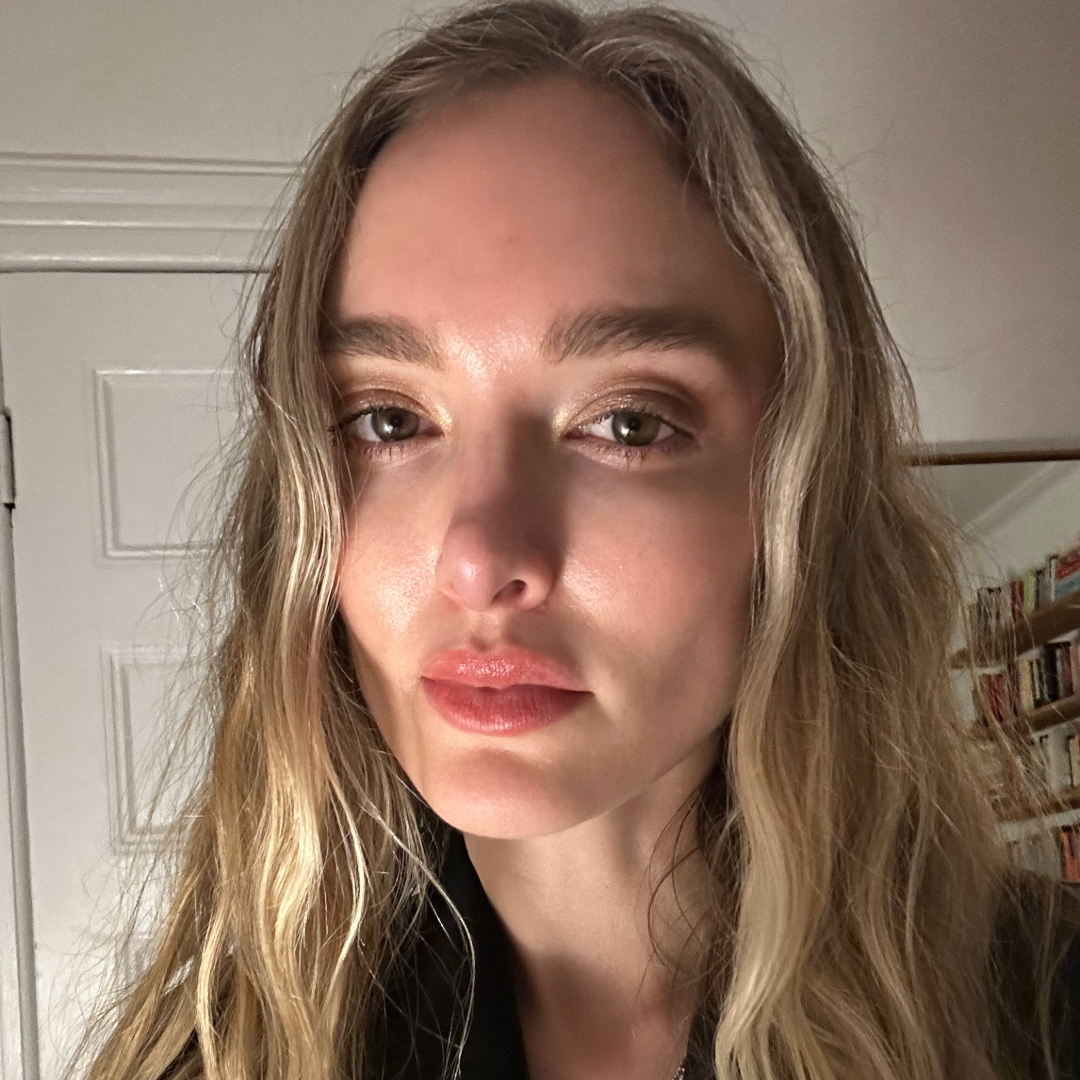
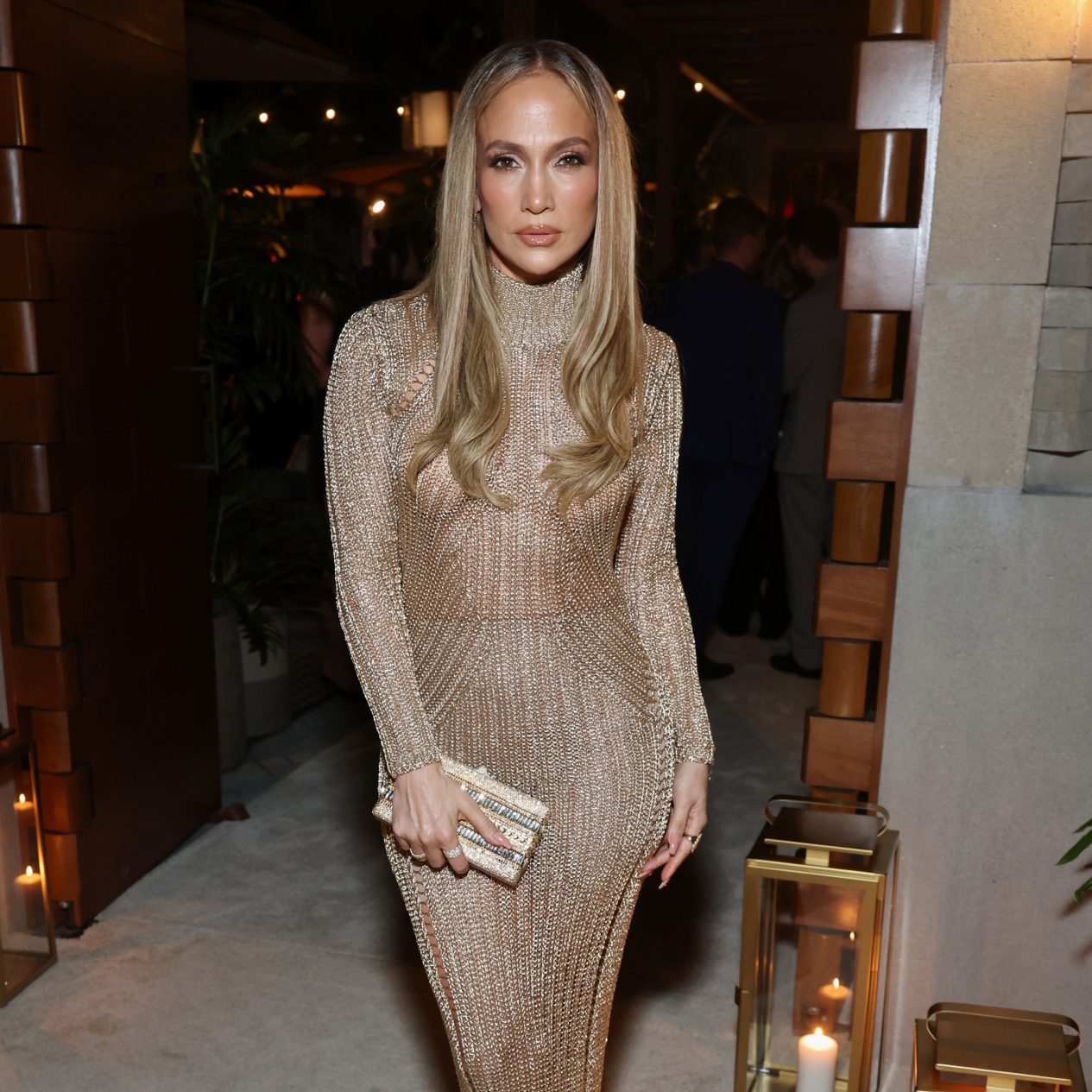
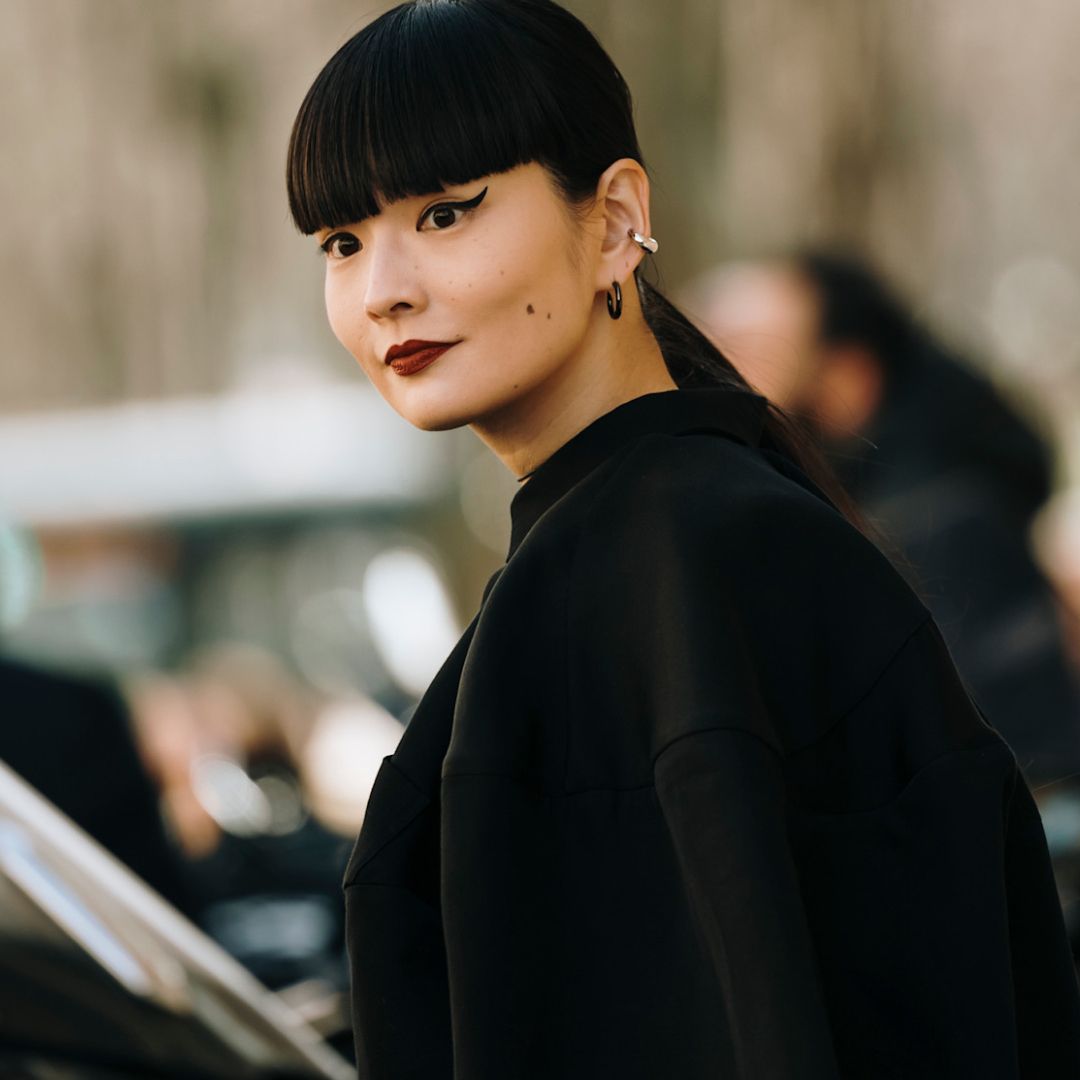


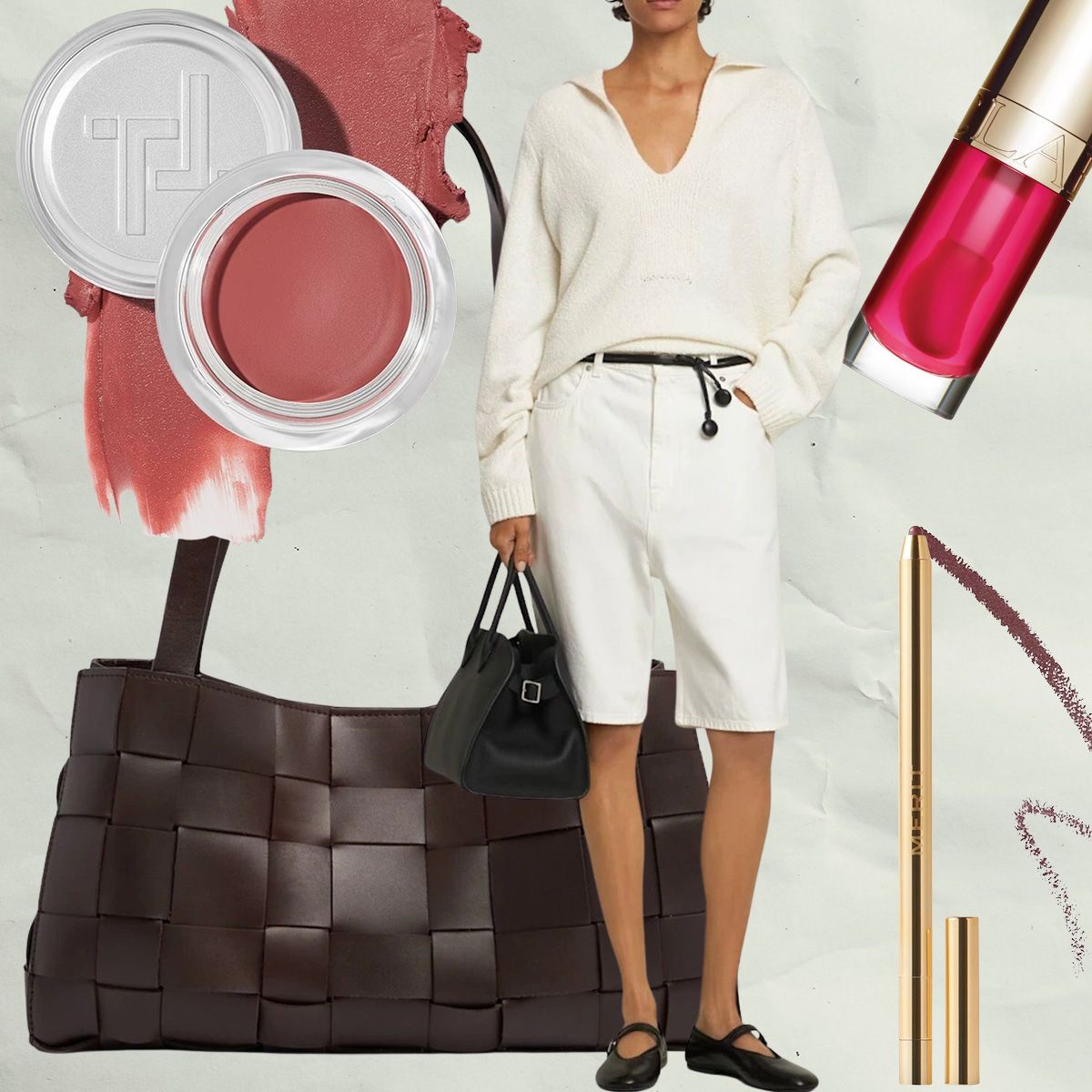
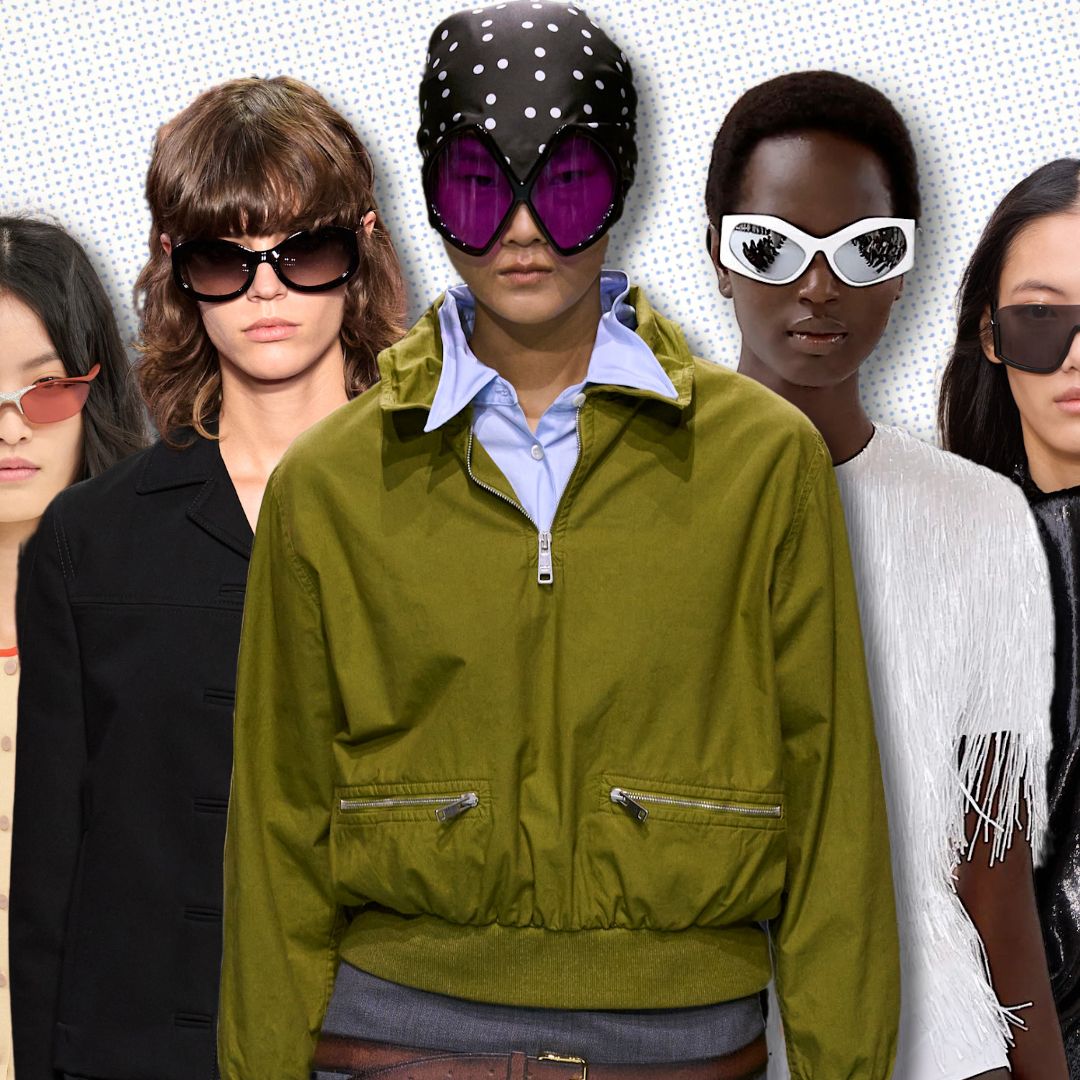
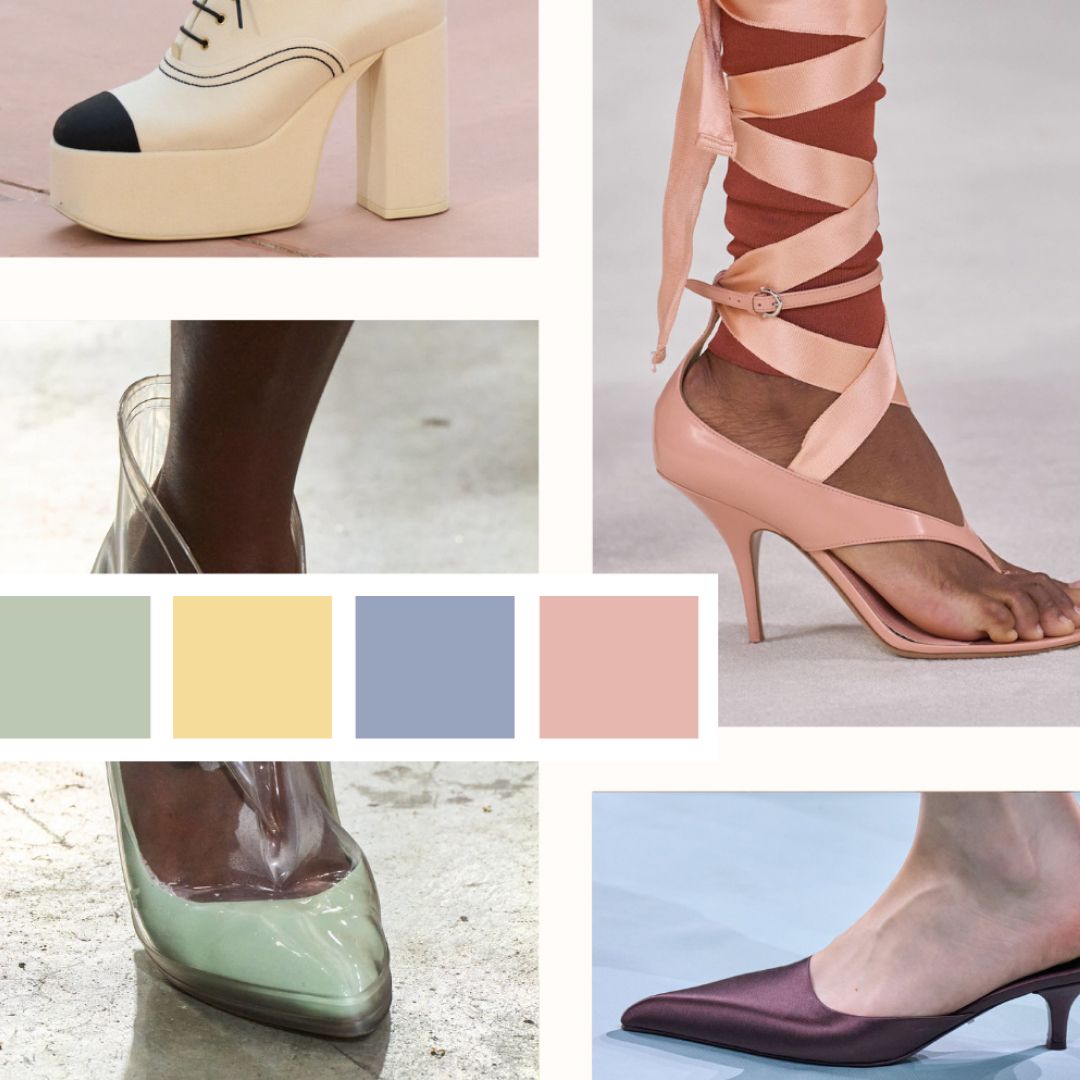
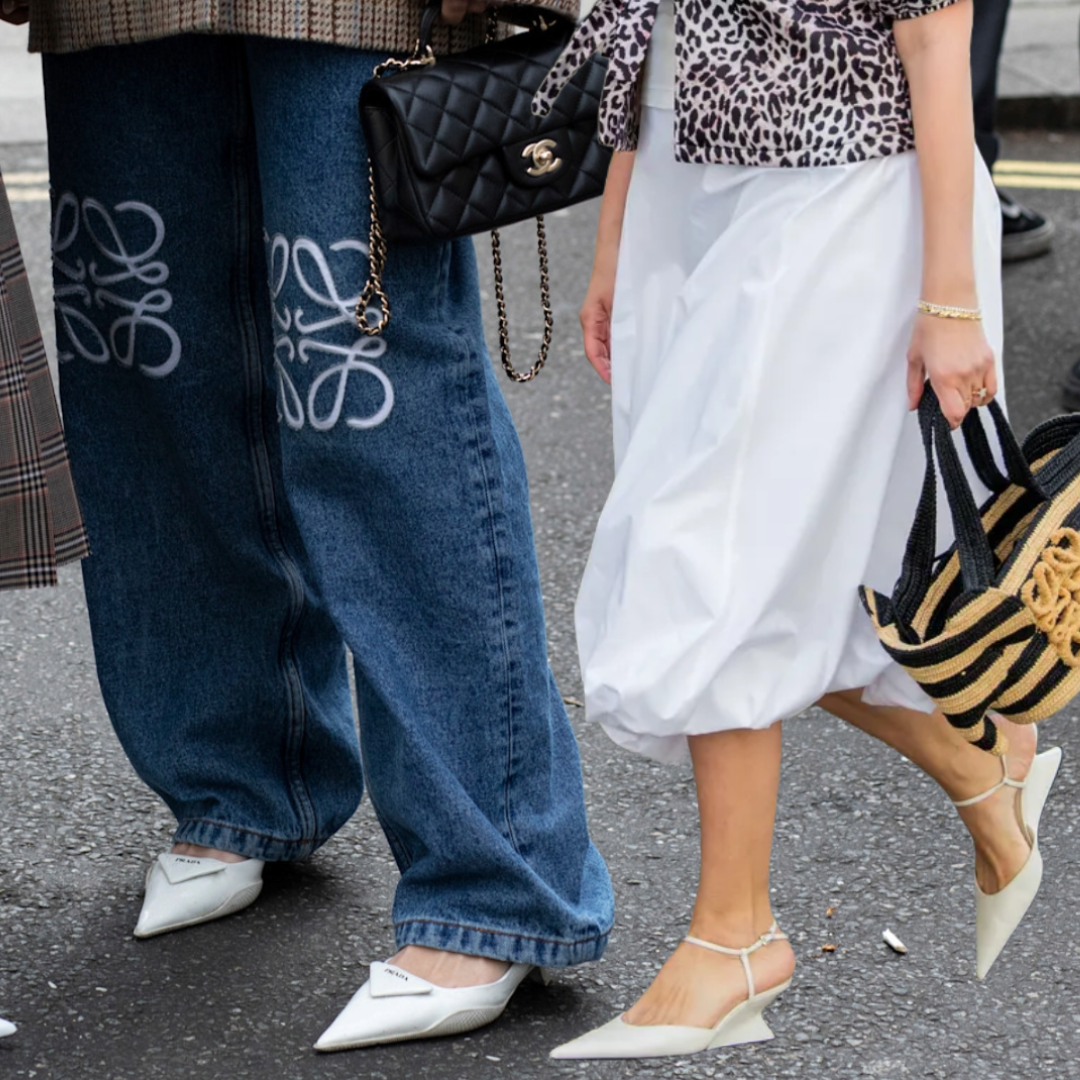
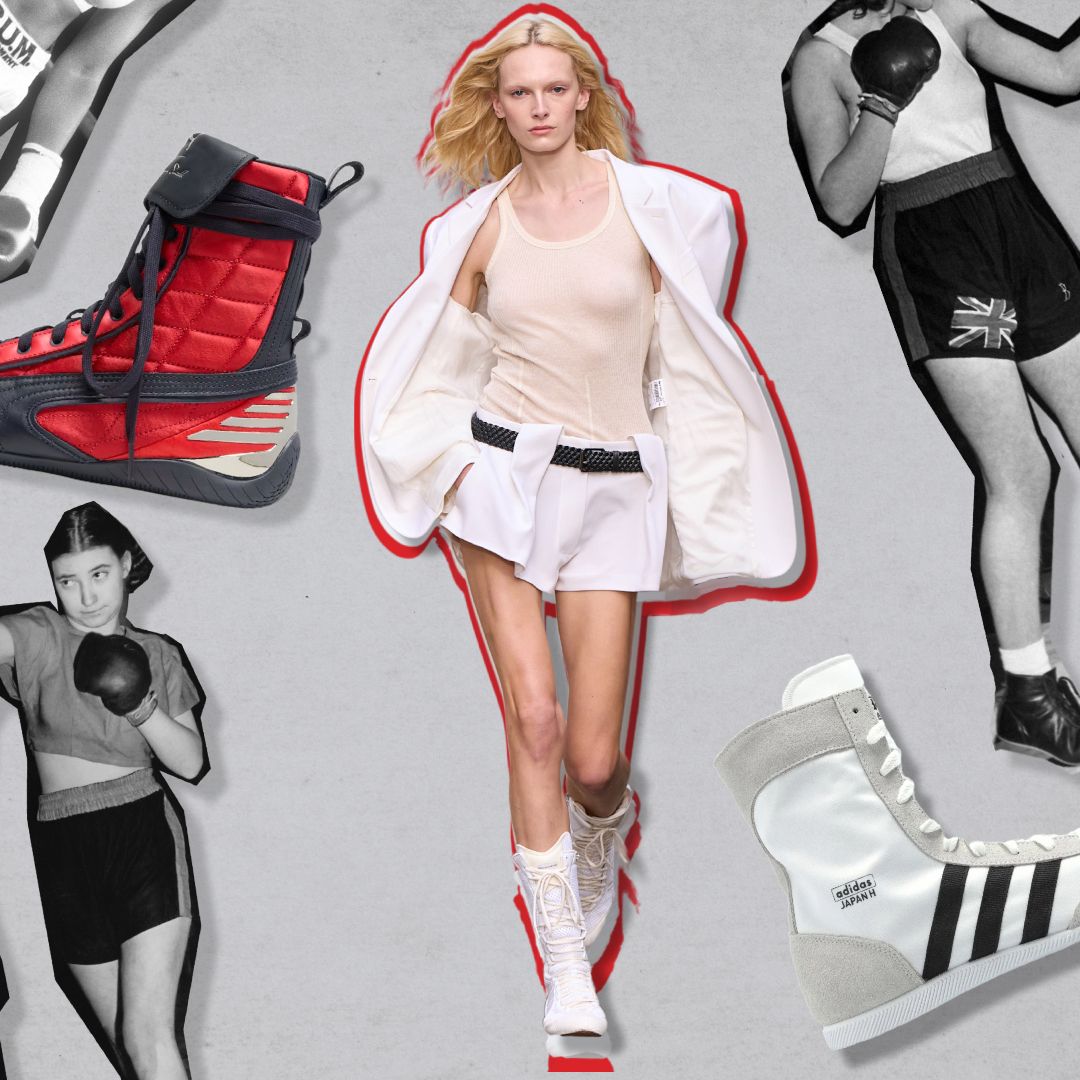
-
 People Always Compliment My Flawless Skin—These 6 Steps Are Why
People Always Compliment My Flawless Skin—These 6 Steps Are WhyFrom sunscreen and essences to moisturizers, it's all here.
By Hannah Baxter Published
-
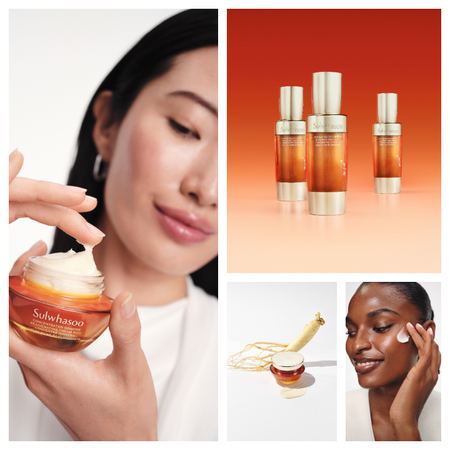 Sulwhasoo’s New Concentrated Ginseng Cream Is a Wrinkle-Erasing Time Machine for My Skin
Sulwhasoo’s New Concentrated Ginseng Cream Is a Wrinkle-Erasing Time Machine for My SkinThis Seoul-based brand is the key to plump skin.
By Samantha Holender Published
-
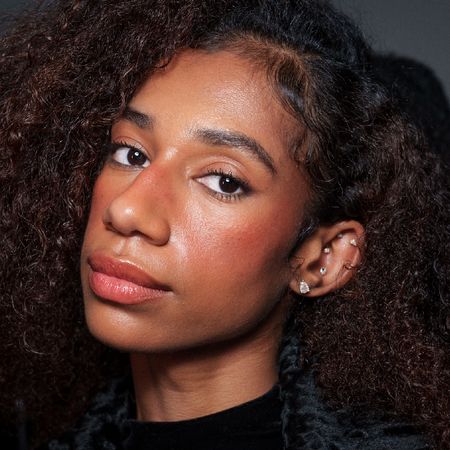 The 10 Best Hair Growth Shampoos of 2025, Tested by Editors
The 10 Best Hair Growth Shampoos of 2025, Tested by EditorsExpensive and healthy-looking hair on lock.
By Marisa Petrarca Published
-
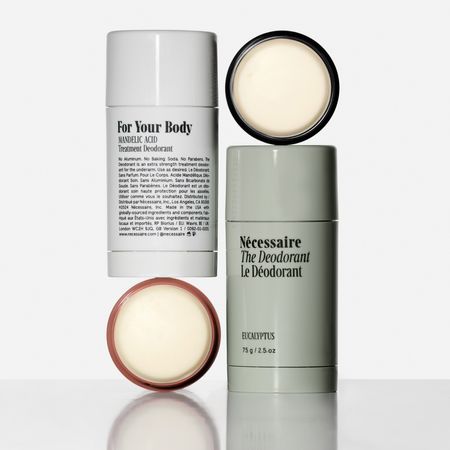 Nécessaire's Extra-Strength Deodorant Outlasts an Editor's Sweatiest Test: Fashion Week
Nécessaire's Extra-Strength Deodorant Outlasts an Editor's Sweatiest Test: Fashion WeekEven with my hectic schedule, I've never smelled better.
By Halie LeSavage Published
-
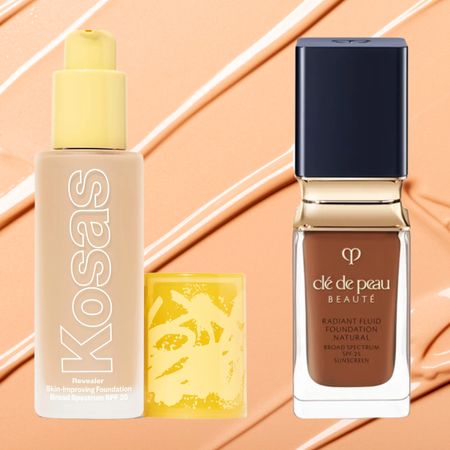 The 13 Best Foundations for Mature Skin, Tested by Women Over 50
The 13 Best Foundations for Mature Skin, Tested by Women Over 50It's perfect for mature complexions.
By Siena Gagliano Published
-
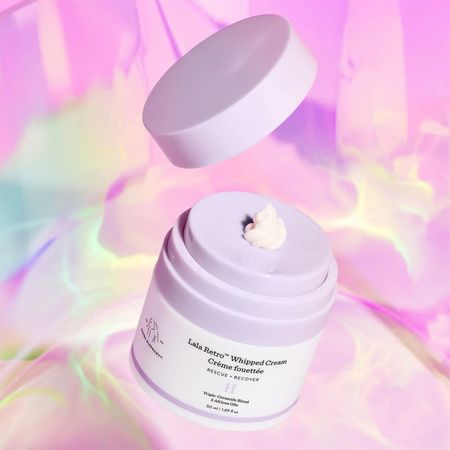 Drunk Elephant Recalls Three Best-Selling Skincare Products Following an Ingredient Mix-Up
Drunk Elephant Recalls Three Best-Selling Skincare Products Following an Ingredient Mix-UpHere's how to know if yours were compromised.
By Hanna Lustig Published
-
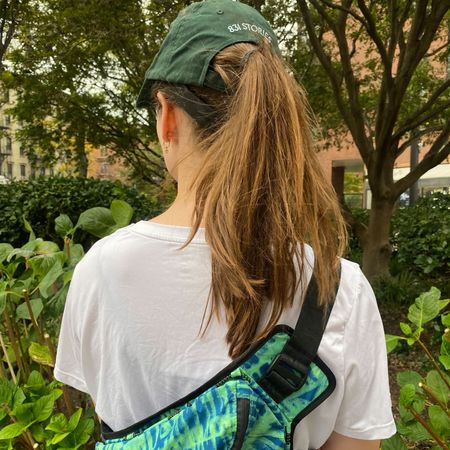 As A First-Time Marathon Runner, These Wellness Essentials Helped Enhance My Training and Recovery
As A First-Time Marathon Runner, These Wellness Essentials Helped Enhance My Training and RecoveryFrom a hardworking deodorant to a soothing sauna blanket.
By Halie LeSavage Published
-
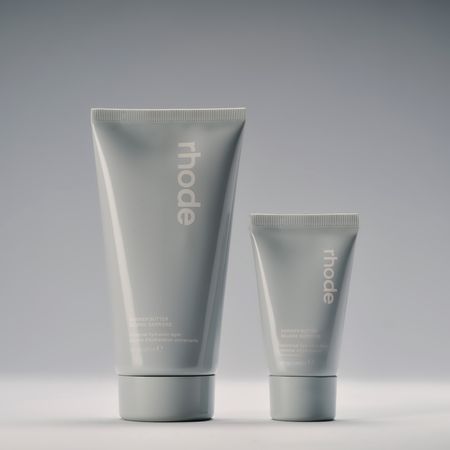 Hailey Bieber’s New Rhode Barrier Butter Is So Decadent, You’ll Want to Smear It Everywhere
Hailey Bieber’s New Rhode Barrier Butter Is So Decadent, You’ll Want to Smear It EverywhereIntroducing the brand's yummiest product yet: Barrier Butter.
By Hanna Lustig Last updated